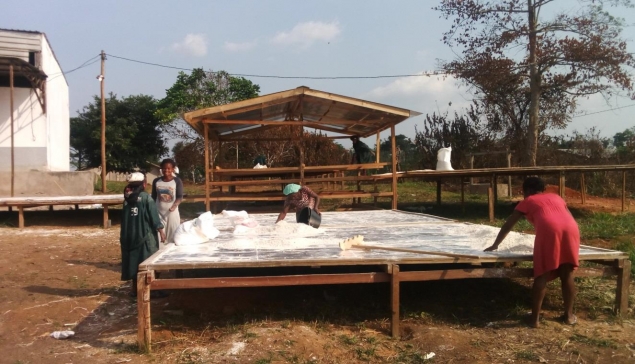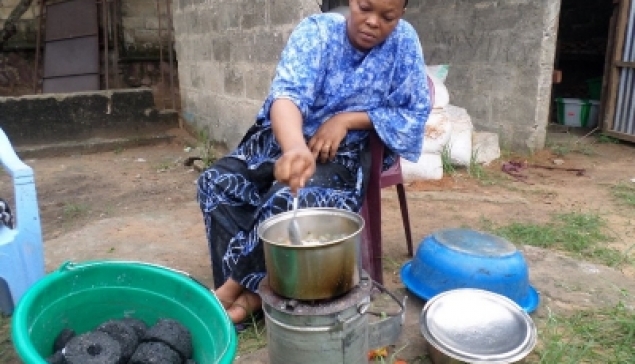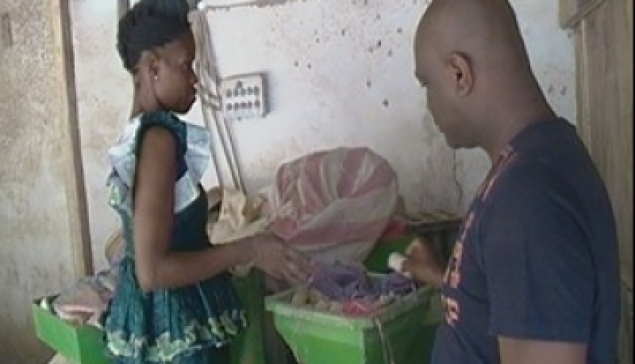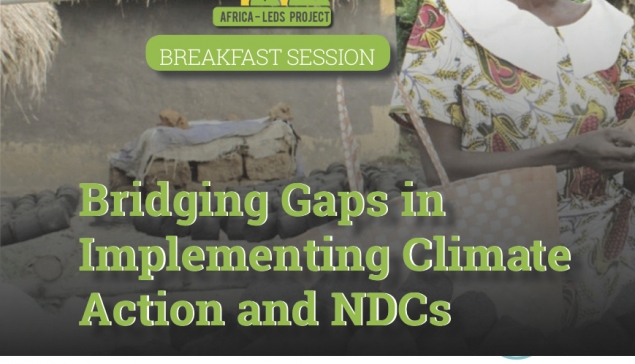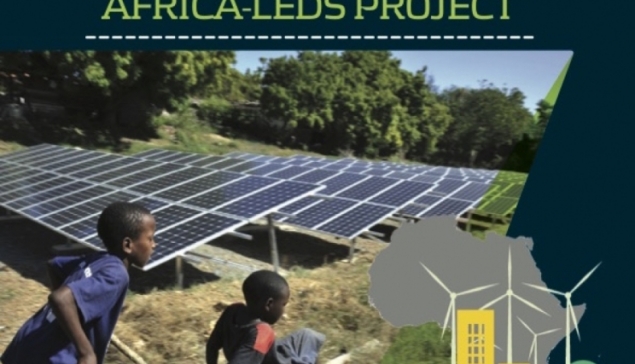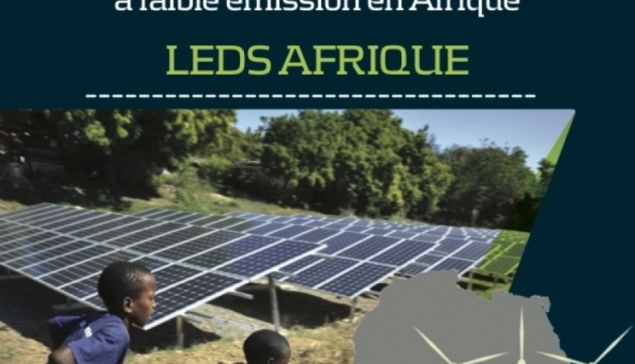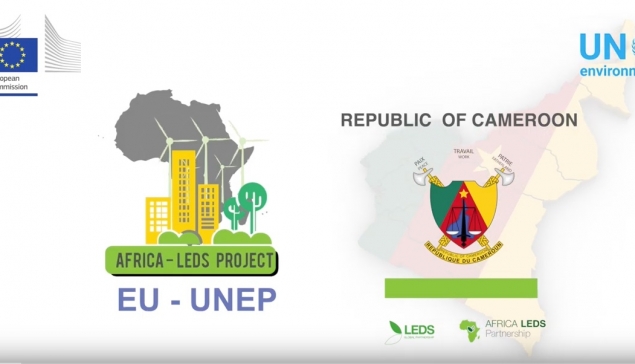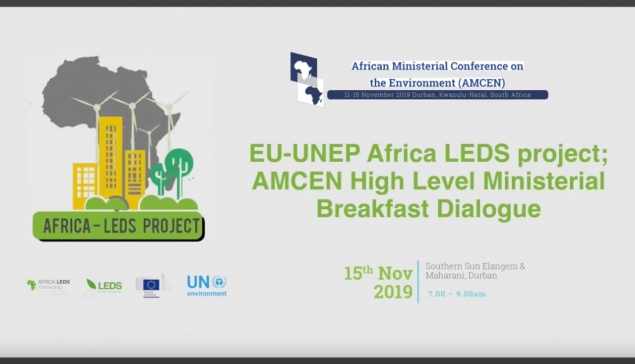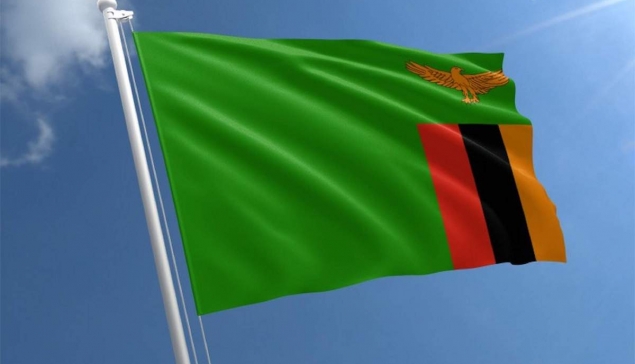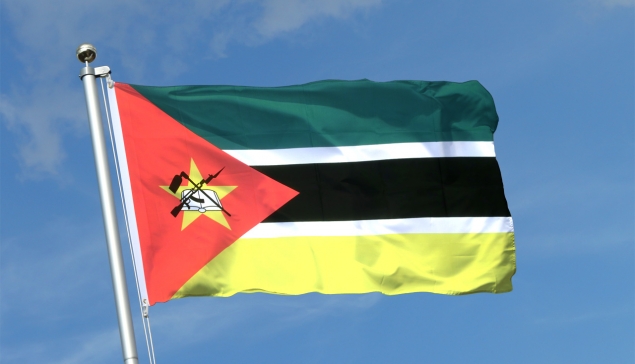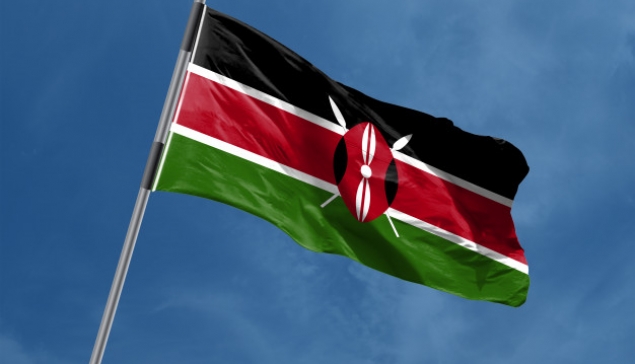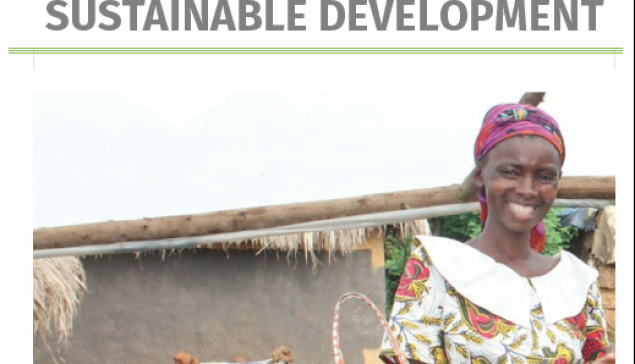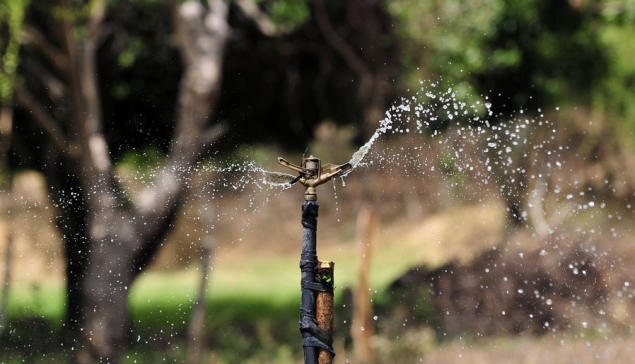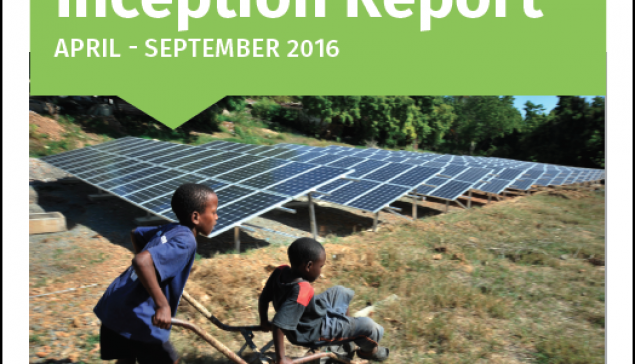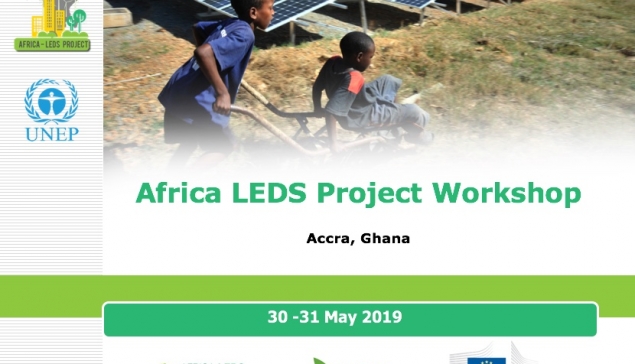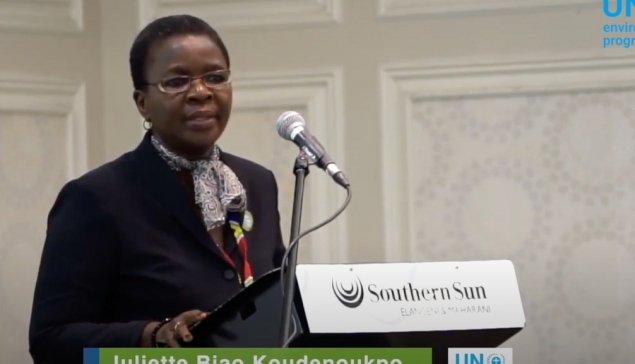- Hits: 1866

LEDS Components
Component 2
Component 2 focused on analytical modelling. Here, integrated modelling frameworks, capable of forecasting the long-term climate and socio-economic impacts of alternative NDC implementation trajectories, were developed. Each country developed its own integrated modelling framework by enhancing existing modelling tools and filling gaps with new tools. Individual modelling tools were then linked into integrated policy analysis frameworks. Training of policy makers, convened under the policy taskforces, was also conducted. The modelling frameworks were designed to equip policy makers with decision support tools to inform them on optimal NDC investments through metrics addressing prioritised and expected economic, environmental, and social outcomes. This component was implemented in 7 countries.
- In Cameroon, stakeholders developed an indigenous model – a customised model that can forecast simultaneous climate and socioeconomic impacts of greening Cameroon’s agro-value chain. The analysis was done using data from the ground demonstration under Component 1 and extrapolated impact nationally and over time up to 2035, the year the national development strategy, Vision 2035, is set to expire.
- In Côte d’Ivoire, stakeholders developed an integrated model combining existing tools of the Long-range Energy Alternatives Planning System, Integrated Benefits Calculator (LEAP – IBC), the Ex-Ante Carbon Balance Tool (EX-ACT), the Center for Climate Strategies’ (CCS) LEDS toolkit, and a geographic information system (GIS). This integrated framework was applied to forecast energy, emissions, resources, and socioeconomic impacts of investing in agriculture, biofertilizer, and agricultural by-products-to-energy systems as demonstrated under Component 1. Impacts were extrapolated through 2050 and scaled-up to the national level.
- In DRC, stakeholders modified the Model for Assessment of Energy Demand (MAED) model to forecast simultaneous climate and socio-economic impacts of investing in waste-to-energy systems towards meeting the national development priority to distribute 1 million improved cookstoves.
- In Ghana, stakeholders developed an integrated model combining existing tools of LEAP and REDD Abacus to forecast simultaneous climate and socioeconomic impacts of investing in renewable wood / plantation forests and improved cookstoves towards meeting national priority to distribute 2 million improved cookstoves and convert 12,000 ha per annum of degraded area to wood plantation.
- In Kenya, stakeholders developed an integrated model combining existing tools of LEAP – IBC, Abacus and I-JEDI to forecast simultaneous climate and socio-economic impacts of investing in clean cookstoves and agroforestry towards meeting national priorities on domestic energy and forestry stipulated in the NDCs, the National Climate Change Action Plan (NCCAP) and the farm forestry policy aims to increase forest cover to at least 10% by 2030.
- In Mozambique, stakeholders developed an integrated model combining existing tools of REDD Abacus and LEAP to forecast simultaneous climate and socioeconomic impacts of investing in agroforestry and solar powered irrigation to achieve national priority to scale up agroforestry to 4million hectares and irrigation coverage to 90,000ha.
In Zambia, stakeholders developed an integrated model combining existing tools of LEAP, I-JEDI, DIA (Development Impact Assessment), and AFOLU Analysis Tool to forecast simultaneous climate and socioeconomic impacts of investing in assisted natural regeneration and sustainable agriculture (organic fertiliser) for land use and clean cookstoves and mini-grids (solar and micro-hydro). These were strategic to drive NDC priorities in energy, agriculture, forestry, and land use.
Contact Us
Africa Low Emissions Development strategies (Africa-LEDS)
United Nations Environment Programme (UNEP)
Africa Office
P.O. Box 30552 00100
Nairobi, Kenya
Email: info@africaleds.org


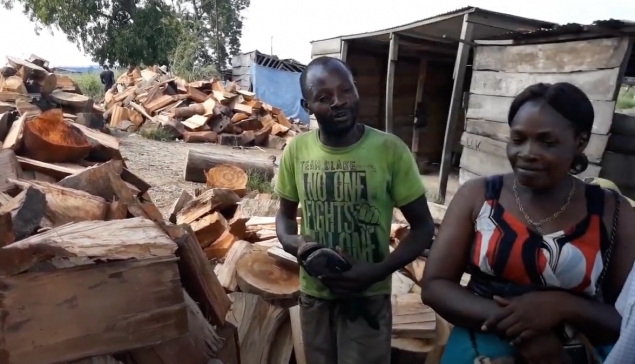
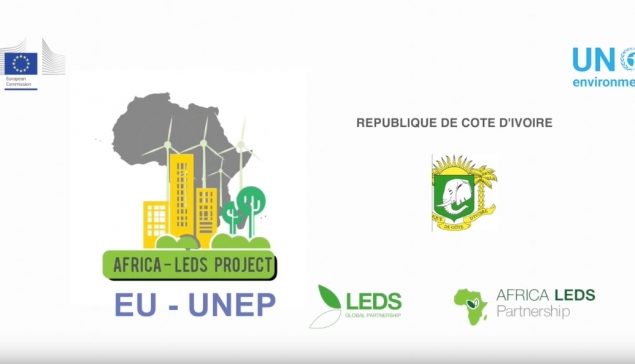


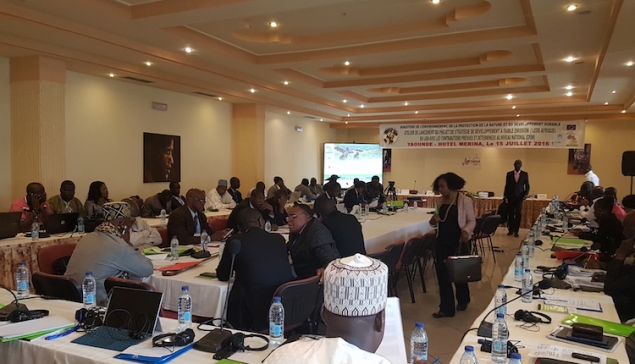
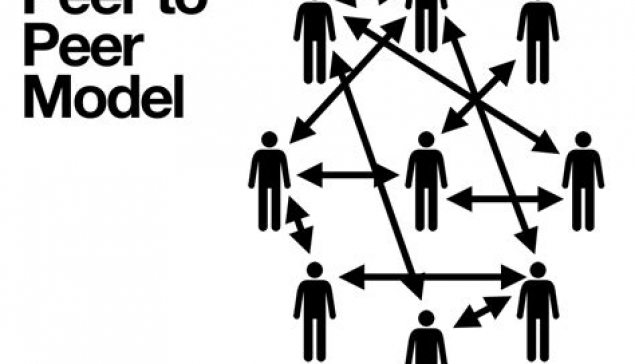

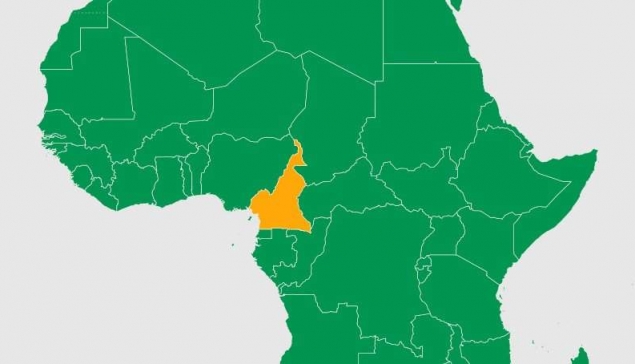
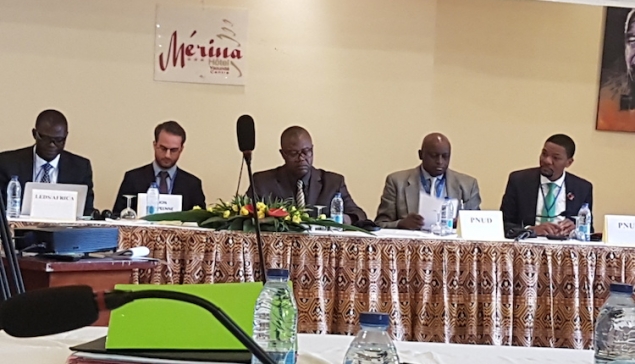
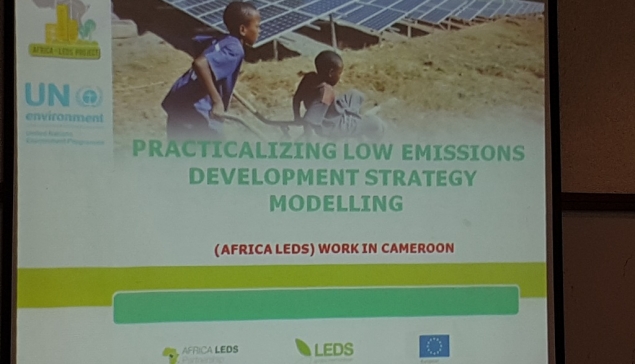
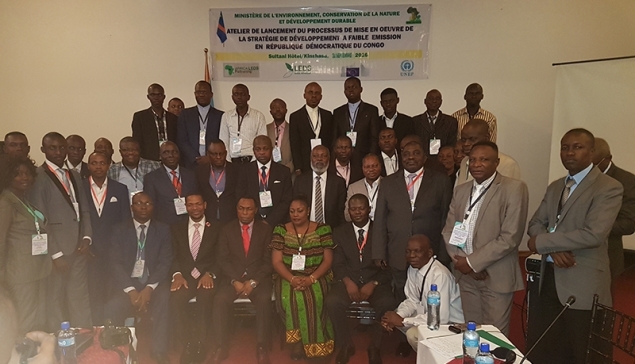
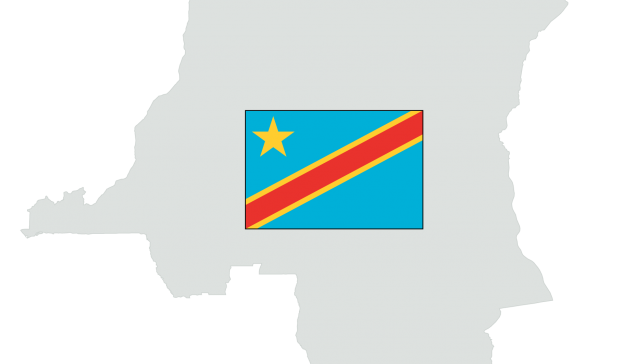
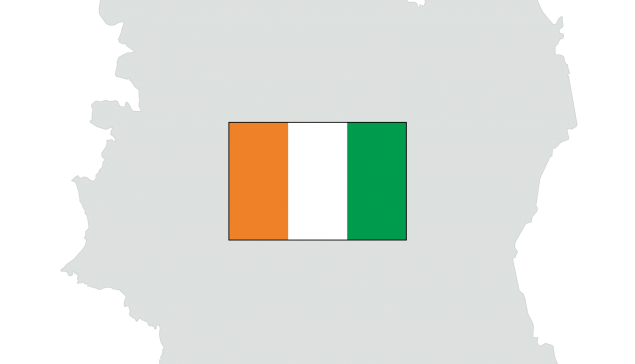
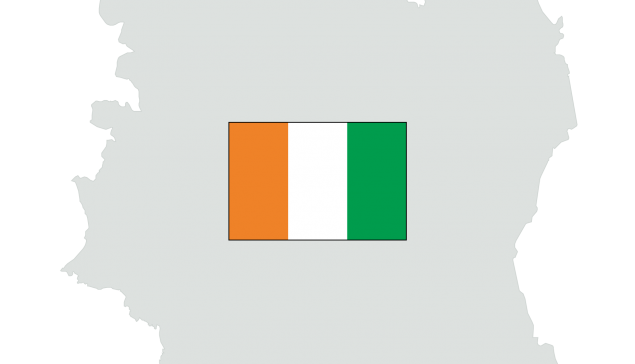
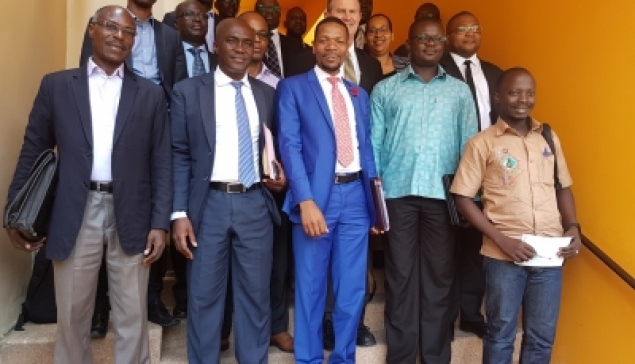
_large.jpg)
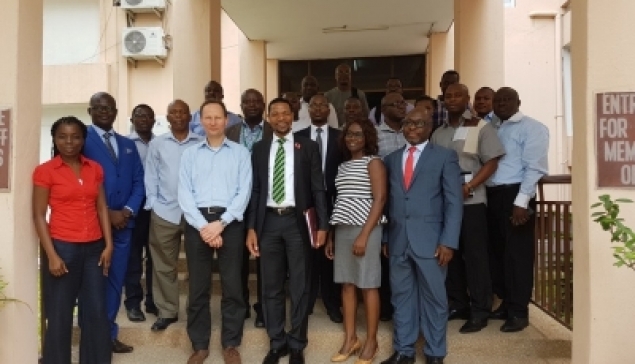
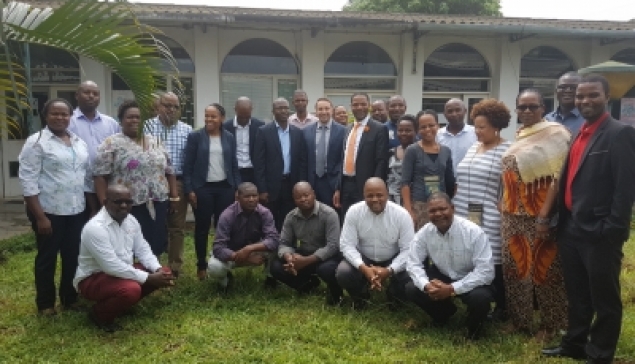
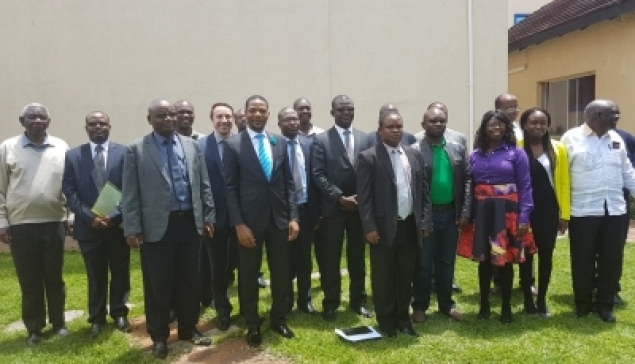
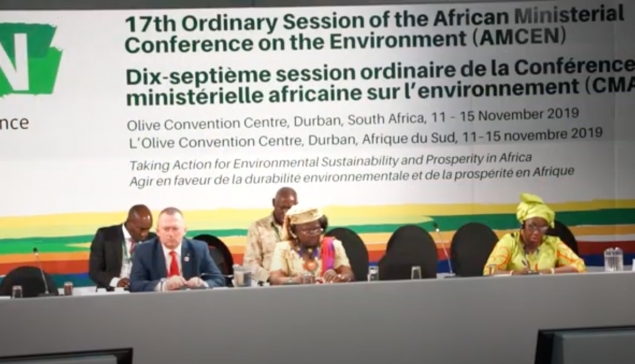

_large.jpg)
